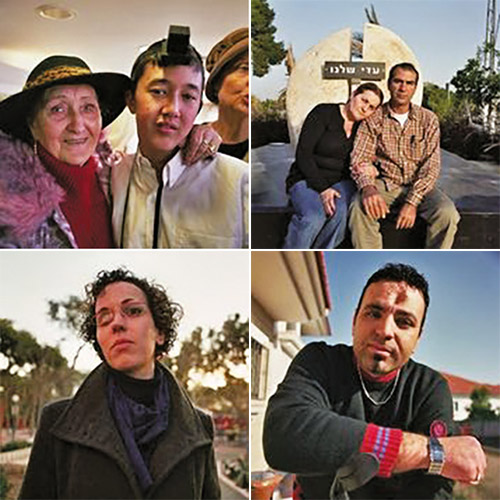
In anticipation of Shavuot, and as we continue to grieve together over the recent tragedy in Meron, I have been thinking about the themes of acceptance and dialectics. These are words I use often—my clients can attest to my inclusion and explanation of “dialectics” early on in our work. In this context, a dialectic refers to the space where two seemingly opposing viewpoints can actually both be held as true at one time. For example, an individual can feel both anger and love at once.
The upcoming holiday is a time to celebrate the receiving of the Torah by our nation at Har Sinai. But not only is it about receiving, it is about accepting; it was not simply bestowed upon us and from then on we were able to—without thought or intention—keep the mitzvot and a Torah way of life. Instead, we need to practice awareness, acknowledgement, and acceptance that this would be a process; that this would be work.
I think of our forefathers who were led by Moshe Rabbeinu and who even then needed to work at accepting the Torah and its laws. They were challenged and they struggled. This was not a smooth, simple transition. They asked questions and they wondered, and they needed guidance and repentance.
And now, years later, we continue to ask questions and to wonder. Not only about our pursuits of living a Torah life, which we can all acknowledge include questions and hard work. But also, with our life pathways in general. They are not simple, straightforward or linear. Even more so, I think of the struggles that we all encounter, and the way there is a vast misconception that when one experiences difficulty or an area of life that includes work, it will be like a car-wash: quick, clean, coming out at the other end all shiny and new.
Life is not about coming out the “other end” unscathed. It is about recognizing the layers of experiences that make us who we are and that the journey through a challenge is one that may be timely, may include feelings of failure or difficulty completing goals. They may include worry and doubt and not believing in oneself or others.
This is all so unbelievably normal. It is not about willpower or how much someone “wants” it. It is not about seamlessly going through all goals. It is about pain and struggle and falling down and perhaps staying down and then getting up—whether by holding another’s hand, by using a tool or by standing on one’s own.
I think of those pursuing recovery or healing and the comments that assume that one makes a decision to “get better” and then boom! It’s over! The process requires many choices, each and every day, to overcome the voice or desire to stay stuck or return to old ways. It is not about “being rational;” it is about experiencing the emotions, validating them, challenging them and recognizing the short and long-term.
I think of how this relates to the grieving process as well. It does not end, it is not about moving on, it is about experiencing the emotions and truly, about fighting to continue forward each day.
I reviewed these ideas with my father who taught me that there is a passuk in Iyov that states, “Adam L’Amal Yulad” which means, “a person is born or destined to do hard work.” Chazal explained that this “hard work” refers to the work of one’s Torah development. Just as we continue to engage in this hard work and can recognize the beauty of this journey, so too let us remember this for all of life’s journey. We do not decide to embark on a journey—even if it is something about which we are passionate and excited—and then skip along an easy path. We must fight and continue to fight and to show up. Let us remember and be compassionate and support each other, offering a lending hand or listening ear. Chag Shavuot Sameach.
Temimah Zucker, LCSW is licensed in New York and New Jersey working with those who struggle with body image dissatisfaction, eating disorders and overall mental health concerns. Temimah is also an adjunct professor at the Wurzweiler School of Social Works, speaks nationally on these subjects and is a supervisor at Monte Nido. To learn more, visit www.temimah.com










